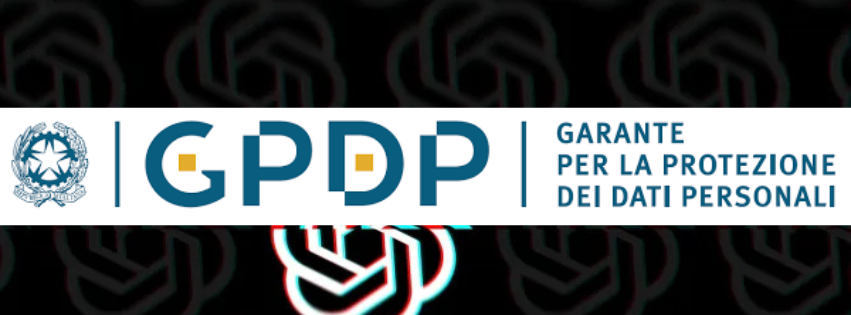In a significant development, the Italian Data Protection Authority (DPA), also known as Garante per la protezione dei dati personali, has fined OpenAI €15 million (approximately $15.6 million) for alleged breaches of the General Data Protection Regulation (GDPR). This penalty stems from an investigation into OpenAI’s data handling practices concerning its flagship product, ChatGPT, highlighting persistent tensions between artificial intelligence development and data privacy regulations.
The Background of the Investigation
The Italian watchdog initiated its probe into OpenAI in March 2023, after concerns emerged about how the company collects and processes personal data. This scrutiny was particularly aimed at the ChatGPT platform, which utilizes vast amounts of data to enhance its conversational capabilities. Earlier this year, the Garante temporarily banned ChatGPT in Italy, citing a lack of transparency in data collection, insufficient legal grounds for processing data, and inadequate measures to verify the age of users.
The temporary ban lifted after OpenAI implemented measures to address these issues, such as introducing age verification mechanisms and updating its privacy policy to clarify how data is collected and used. Despite these corrective actions, the Garante’s investigation continued, culminating in the €15 million fine announced on December 20, 2024.
Alleged GDPR Violations
The Italian authority identified several areas where OpenAI allegedly fell short of GDPR compliance:
- Lack of Transparency: The investigation found that OpenAI’s data collection practices were not sufficiently transparent. Users were not adequately informed about what data was being collected, how it was processed, or the purposes for which it was used.
- Absence of Legal Basis: GDPR mandates that companies must have a clear legal basis for processing personal data, such as user consent or legitimate interest. The Garante argued that OpenAI did not adequately justify its legal grounds for processing user data in Italy.
- Failure to Protect Children’s Data: ChatGPT’s broad accessibility raised concerns about its usage by minors. The lack of robust mechanisms to prevent underage users from accessing the platform led to accusations of insufficient safeguards for children’s data privacy.
- Data Accuracy Concerns: GDPR requires companies to ensure the accuracy of personal data they process. OpenAI’s generative AI model, ChatGPT, occasionally produces incorrect or fabricated information, which could potentially infringe on this requirement.
The Role of the EDPB
The European Data Protection Board (EDPB) played a crucial role in this case by supporting the Italian authority’s actions and ensuring consistency in GDPR enforcement across the EU. The EDPB emphasized the need for transparency and accountability in AI systems, particularly generative models like ChatGPT, which process vast amounts of personal data. The board’s backing strengthened the Garante’s position, underlining that data protection principles must remain a priority despite the rapid advancements in AI technology.
The EDPB’s involvement highlights the broader European approach to AI regulation, where collaboration among member states is critical to addressing cross-border privacy concerns.
Broader Implications for AI Companies
The fine against OpenAI underscores the growing regulatory challenges facing AI companies operating in Europe. The EU’s GDPR, widely regarded as one of the world’s most stringent data protection laws, places a strong emphasis on user privacy, consent, and accountability. AI systems that rely on large-scale data processing are inherently at odds with some of these principles, creating a complex compliance landscape for companies like OpenAI.
Moreover, the case serves as a warning to other AI developers about the importance of embedding privacy-by-design principles into their technologies. Regulatory bodies across the EU are closely monitoring AI advancements, with additional frameworks like the EU AI Act expected to come into force in the coming years. These regulations aim to establish stricter rules for high-risk AI applications, potentially increasing compliance burdens for AI firms.
OpenAI’s Response
In response to the fine, OpenAI expressed its commitment to addressing the Garante’s concerns and ensuring its practices align with European regulations. In a public statement, the company highlighted its ongoing efforts to enhance transparency, implement robust age verification systems, and improve data protection measures.
OpenAI’s CEO, Sam Altman, acknowledged the importance of adhering to GDPR principles while balancing innovation in AI. “We respect the decision of the Garante and are committed to fostering trust in AI technologies by prioritizing user privacy and regulatory compliance,” Altman said.
However, the company has not ruled out appealing the fine. Legal experts suggest that OpenAI might contest the Garante’s findings, particularly regarding the interpretation of GDPR provisions as they apply to generative AI technologies.
The Global Perspective
This fine is not an isolated incident. AI companies worldwide are facing increased scrutiny over their data handling practices. In the United States, OpenAI has also come under the spotlight, with lawmakers calling for clearer regulations to govern AI development. Similarly, in other regions, regulators are grappling with how to apply existing data protection laws to emerging AI technologies.
The case also raises questions about the future of cross-border data flows. As countries introduce AI-specific regulations, companies like OpenAI may face challenges in maintaining global operations while complying with a patchwork of local laws. This could lead to a trend of region-specific adaptations for AI systems, potentially impacting their scalability and innovation.
Conclusion
The €15 million fine levied against OpenAI marks a pivotal moment in the intersection of AI innovation and data privacy regulation. As the first major penalty imposed on a generative AI company under GDPR, it sets a precedent that could influence future regulatory actions globally.
For OpenAI, the fine serves as both a challenge and an opportunity. By addressing the Garante’s concerns and enhancing its compliance efforts, the company can demonstrate its commitment to ethical AI development. At the same time, the case highlights the need for a collaborative approach between regulators and technology providers to ensure that innovation does not come at the expense of fundamental rights.
As AI continues to evolve, the balance between regulation and innovation will remain a critical issue. Companies operating in this space must navigate these complexities carefully, recognizing that trust and transparency are as vital to their success as technological breakthroughs.
SOURCES
https://www.pymnts.com/legal/2024/italian-authority-fines-openai-15-6-million-for-alleged-gdpr-violations/
https://www.reuters.com/technology/italy-fines-openai-15-million-euros-over-privacy-rules-breach-2024-12-20/

